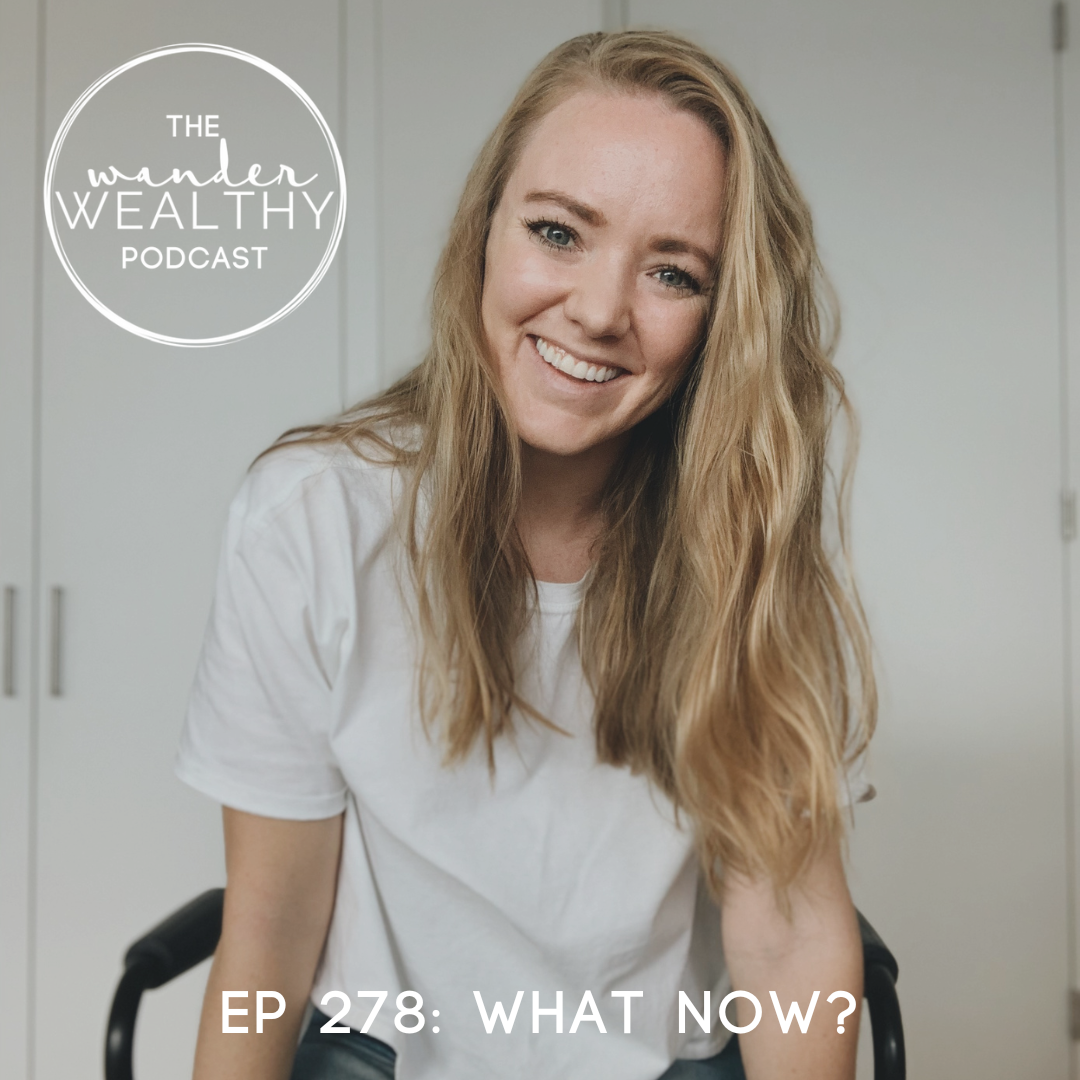W+M 020: An Interview with Addie McHale
Addie McHale, CFP is the founder of Moneyful. She believes in leaving things better than she finds them and is very intrigued by what is called “interior finance” how our beliefs and values impact how we view our money (you’ll hear more about that in this interview). Addie is also a Health Insurance expert. She helps individuals navigate their way through open enrollment as well as navigate the terminology and complications of health insurance. In this interview, Addie helps us understand the complexities of health insurance. You’ll find out how to pick the best health solutions for you when taking on a new job, learn enough to understand general terminology, and even understand what all the fuss is about with the Affordable Care Act, aka Obamacare. We talk beliefs, living below our means, and a quick and easy way to start building wealth.
Listen to the show:
What we talk about:
Addie tells us about Moneyfull
How Addie started financial planning when she was 8 years old
Uncovering the beliefs that we have around money - Take inventory of your beliefs and Tapping (EFT)
Takeaway on debunking your health insurance options (see below)
Addie explains the Affordable Care Act (Obamacare)
How we can achieve success by living below our means
Capture your income and calculate your Net Worth (everything that you own minus everything that you owe)
Takeaway: Health Insurance
- Pick a plan that makes sense for you because you won't be able to change until your company's next open enrollment (usually in November)
- Health Savings Account (HSA): A great option. Ask HR if this plan is available
- You put money into this account pre-tax (up to $3,350 in 2016) and you can spend this money on qualified medical expenses.
- The only vehicle that exists where money can go in and come out tax-free, as long as the money is spent on qualified medical expenses.
- Money can be spent on alternative options like acupuncture, chiropractic, and therapy.
- Your employer may contribute to this account as well.
- Flex Savings Account (FSA)
- Allows you to put money into the account and use for medical expenses, like an HSA, but it is a "use it or lose it" plan. So if you don't use the money be year-end, you might lose some of the dollars unless your employer lets you rollover the money.
- You have to have an HSA compatible plan in order to have your HSA or FSA
- These plans are defined by the IRS. They have to have a certain amount of deductible and do not have copays. (Not good if you're somebody who goes to the doctor a lot or you're on expensive medication.)
- What to know about the Health Insurance Plans
- PPO: The biggest network of doctors. Often nationwide coverage.
- HMO: Local and smaller network of doctors.
- It's always important to stay in-network with doctors and pharmacies. If you're unsure, call the number on the back of your insurance card. Don't assume!
- You will pay way more for things if you're going to someone outside of your network, and it may not even go towards your deductible.
- Copay: You might pay $25 for a doctor's visit as opposed to what the contracted price is to see the doctor. (Your copay will not accumulate towards your deductible.)
- Deductible: You are 100% responsible for the cost of your medical bill up to the amount of your deductible.
- Example: If your deductible is $2,000, you are responsible for 100% of the medical bill cost up to $2,000.
- Coinsurance: The percentage you pay between your deductible and your out of pocket max.
- Example: Bill = $10,000. You pay $2,000 because you're deductible is $2,000. Then from $2,000 (your deductible) and $5,000 (your out of pocket max) you might pay your coinsurance, say 25% of that amount while your insurance company will pay 75%. Once you hit $5,000, your insurance will take over 100%.
- Out of Pocket Max: The most important number when picking the plan because when something expensive/catastrophic happens to you, you want to handle this number. The maximum liability you're on the hook for in any given year.
- Stay on your parent's plan or go with your new job's plan?
- Look at the cost and compare
- Look at the benefits and compare
- Look on your pay stub and see how much you're paying for health insurance.
- "If you're healthy and you do have savings to cover yourself in the case of an expensive medical situation, you might want to pick a cheaper plan."
- Catastrophic Coverage: Cheaper and only offered to people who are under 30 (with few exceptions), and it has a high out of pocket max, $6,850.
"I believe having money in the bank gives me freedom."
"Medical bills are the number one cause of bankruptcy in this country."
"Nothing external will ever satisfy us ultimately, and the sooner you realize that the better off you will be."
"If you can clean up your cashflow problems, that's really going to help you feel more at peace."
"We really need to learn to live below our means, which we can do right away. It just means saving and paying ourselves first."
"You'll be amazed at how addicting saving can be."
Contact Addie: www.moneyfull.com, Twitter (@AddieMcHale), Facebook






















